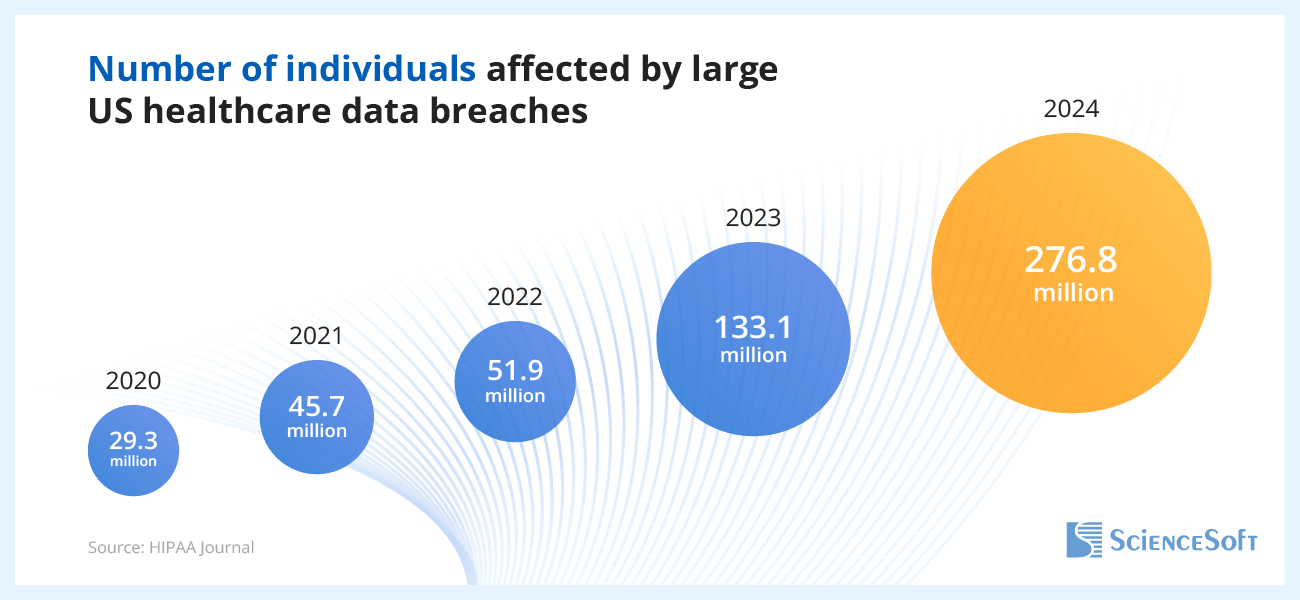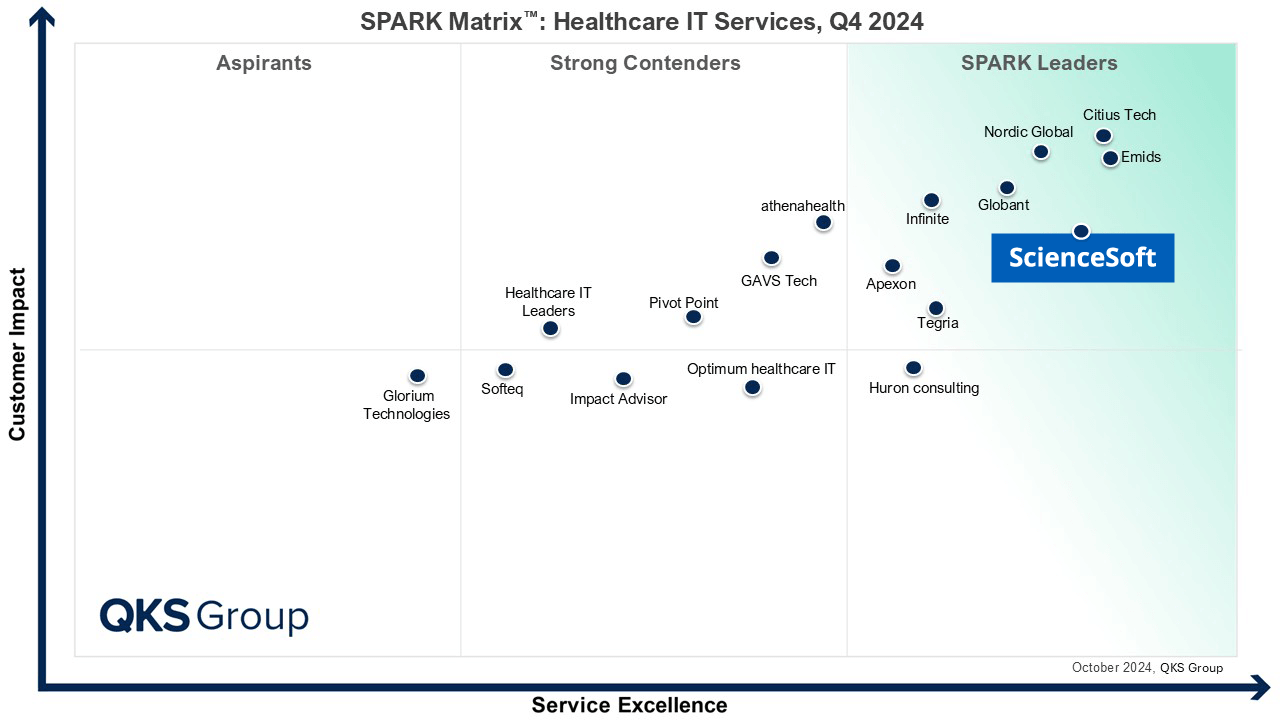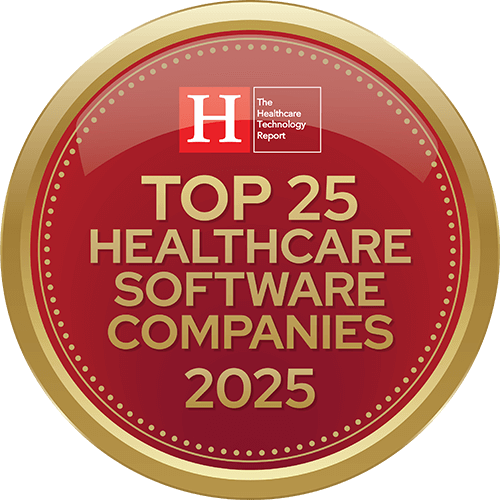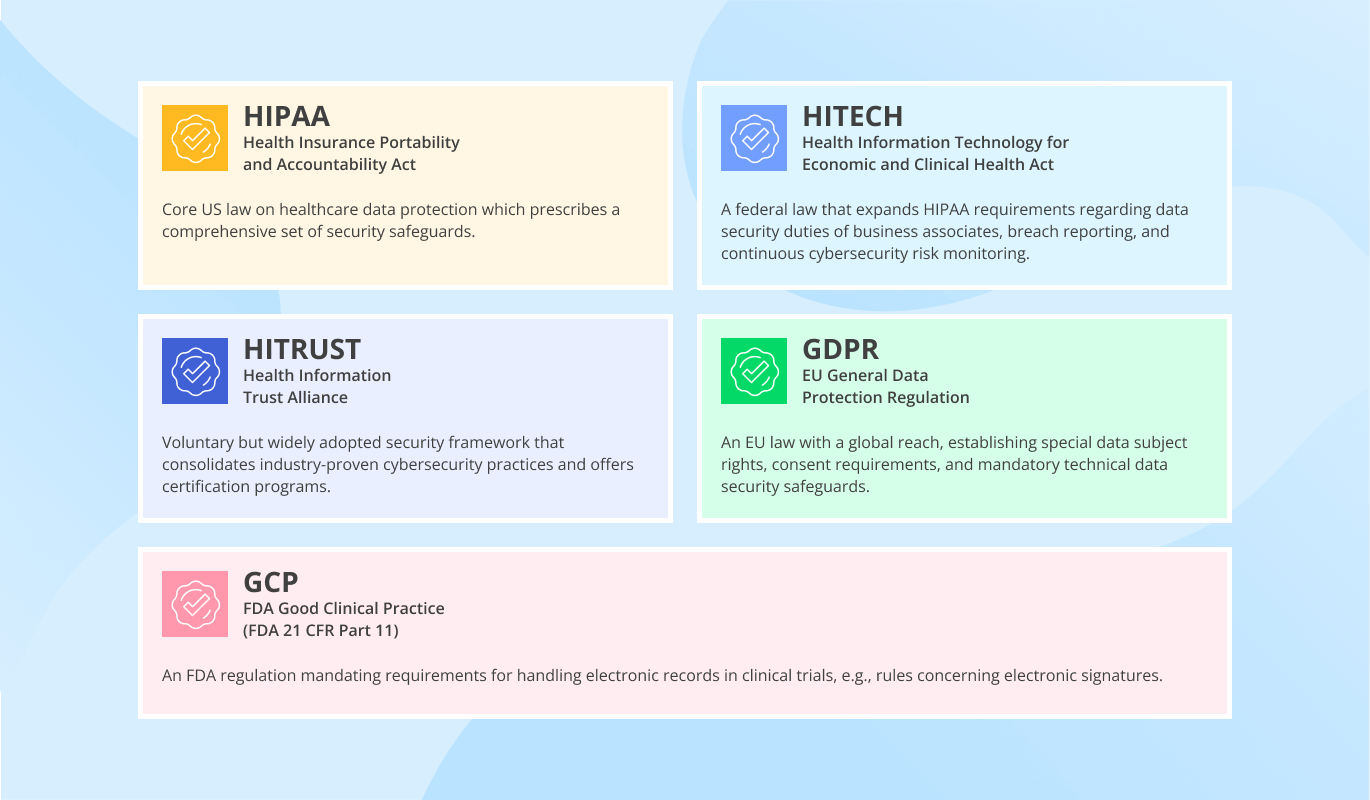How to Make Your Telemedicine App HIPAA-Compliant
With 22 years of experience in cybersecurity and 20 years in healthcare IT, ScienceSoft helps healthcare providers and software product companies design and build HIPAA-compliant telemedicine software.
A Brief Look at HIPAA Compliance in Telemedicine
The telemedicine market is projected to grow at a CAGR of 16.93% from 2025 to 2032. This means that the volume of patient data transmitted through telemedicine solutions will only increase, and so will the risk of protected health information (PHI) breaches. In the United States, large healthcare breaches exposed 276 million records in 2024, which is more than nine times the volume recorded five years ago. At the same time, the average cost of a healthcare data breach reached $7.42 million in 2025. To avoid financial and reputational damage, it is crucial to ensure that your telemedicine app complies with HIPAA.

With a portfolio of more than 150 healthcare IT projects and 22 years of hands-on experience in cybersecurity, ScienceSoft helps its clients prevent HIPAA non-compliance. Use our free calculators to estimate the cost of HIPAA assistance or HIPAA-compliant telehealth app development.
Key Steps to Develop HIPAA-Compliant Telehealth Software
ScienceSoft’s consultants prepared a step-by-step guide for achieving and maintaining HIPAA compliance in telemedicine apps.
1.
Discovery and project planning
- (If you outsource telemedicine app development, modernization, or compliance testing) Sign a Business Associate Agreement (BAA) with the service provider who will have access to PHI.
- Assign a compliance consultant to monitor the development process. Outsourcing compliance consulting is a viable option if you do not plan to hire an in-house consultant.
- Confirm that the discovery team has sufficient experience in HIPAA-compliant software development to accurately translate your compliance requirements into software requirements.
- Ensure that the team members keep complete documentation of the process (detailed telemedicine software architecture, risk management practices, security testing records, etc.).
- Design the matrix of access rights and permissions based on telemedicine software user roles (patients, medical professionals, administrators).
2.
Infrastructure design and development
- Design the app’s IT infrastructure to be secure and highly redundant to ensure data security, availability, and integrity in line with the HIPAA rule.
- Utilize HIPAA-compliant cloud services (e.g., Azure or AWS) that offer scalable data storage.
- Protect the networks with firewalls, anti-malware, and IDS/IPS.
- Enable data encryption at rest and in transit.
- Use secure communication protocols (e.g., SSL/TLS) to protect data in transit.
- Implement mechanisms that will automatically delete messages after a specified retention period.
- Provide features like message recall and self-destruct to allow users to remove sensitive data quickly if sent on accident.
- Utilize encrypted video codecs (e.g., VP9, H.264) to protect the privacy of telehealth conversations.
- Enable strict access controls such as multi-factor authentication and automatic logoff. Mobile telemedicine apps can use facial recognition or fingerprint scanning.
- Implement audit controls to record any interactions with ePHI.
- Set up integrity controls to protect ePHI from improper alteration or destruction.
- Create a break-glass account for emergency access to sensitive patient information and data backup and recovery mechanisms.
- Create mechanisms to identify and notify users about PHI breaches. For instance, machine learning algorithms can automatically scan the app for unusual activities and send alerts in case of abnormalities.
- Choose a HIPAA-compliant payment solution (e.g., Square, PaymentCloud).
Some of our healthcare clients are worried that data encryption can substantially slow down the work of their telemedicine app. Data encryption in transit doesn’t affect app performance in a way that the users would notice. As for at-rest encryption, it can indeed negatively impact the app’s performance when done at the application level, which is why we use file-level or block-level encryption when developing telehealth apps.
3.
Security testing
Verifying HIPAA compliance of telemedicine software is not a one-time procedure. Only continuous measures can ensure the security of a telehealth application and all transmitted and stored data. ScienceSoft suggests regularly conducting the following activities:
- Vulnerability assessment and penetration testing of the telemedicine app and its infrastructure. Conduct penetration tests at least once a year.
- Automated code review to reveal data encryption errors, cross-site scripting vulnerabilities, and other potential attack vectors.
- Manual assessment of auditing, logging, data validation mechanisms, communication security, etc.
- Verifying obfuscation and serialization filtering.
- Simulating SQL and script injections.
There are cases where healthcare software already in use needs to be tested for HIPAA compliance again after undergoing significant changes (say, you added new features or migrated a legacy solution to the cloud). For increased security, ScienceSoft uses mock test data instead of real ePHI when testing such software for HIPAA compliance.
4.
Maintaining compliance after the launch
- Provide users with guidelines on secure telemedicine software operation and privacy protection.
- Examine the data security of your telemedicine application and its compliance with HIPAA regularly.
- When the software is modified, update its documentation accordingly.
- Simulate social engineering attacks to confirm employee vigilance and knowledge of best cybersecurity practices.
5.
HIPAA Compliance Pre-Audit
A HIPAA assessment is usually conducted before the software launch. However, ScienceSoft’s compliance experts also recommend it for live telemedicine apps if there have been significant software modifications, security incidents, or changes in HIPAA regulations. We suggest including the following activities in the pre-audit:
- Conducting vulnerability assessment and penetration testing.
- Confirming that obfuscation and serialization filtering are implemented.
- Evaluating access and integrity controls.
- Assessing data validation mechanisms.
- Checking if communication is secure and audit logging is proper.
- Modifying the documentation according to the introduced changes (if applicable).
Why Clients Trust ScienceSoft as a HIPAA Development Consultancy
- 22 years in cybersecurity and 20 years in healthcare IT.
- 150+ successful healthcare IT projects.
- ISO 13485, ISO 9001, and ISO 27001 certificates.
- Hands-on experience with HIPAA, Cures Act, GDPR, FDA, MDR, SAMHSA, CEHRT, and SAFER requirements.
- Proficiency in healthcare standards and terminologies such as HL7/FHIR, ICD-10, SNOMED CT, LOINC, RxNorm, CPT, NCPDP SCRIPT, XDS/XDS-I, FHIR, DICOM, and CCDA.
Our awards, recognitions, and certifications

Featured among Healthcare IT Services Leaders in the 2022 and 2024 SPARK Matrix
Recognized for Healthcare Technology Leadership by Frost & Sullivan in 2023 and 2025
Named among America’s Fastest-Growing Companies by Financial Times, 4 years in a row

Top Healthcare IT Developer and Advisor by Black Book™ survey 2023
Four-time finalist across HTN Awards programs

Named to The Healthcare Technology Report’s Top 25 Healthcare Software Companies of 2025

HIMSS Gold member advancing digital healthcare
ISO 13485-certified quality management system
ISO 27001-certified security management system
Sourcing Models for HIPAA-Compliant Software Development
In-house HIPAA-compliant software development
- Complete control over the project.
- A lack of in-house expertise can lead to poor translation of HIPAA requirements into software requirements.
Team augmentation
- Quick access to highly qualified specialists for HIPAA-compliant telemedicine software development and the flexibility to scale resources up or down as required.
- It may be challenging to manage the distributed teams effectively.
Fully outsourced HIPAA-compliant software development process
- The responsibility for delivering HIPAA-compliant apps falls entirely on the vendor.
- The project's success ultimately depends on the vendor’s competence.
Our Tech Stack for Telehealth Software Development and HIPAA Compliance Testing
Clouds
Video
Streaming
Messaging and conferencing
Vulnerability assessment and penetration testing
Secure code review
Smart contract security review
Telehealth App Development and Compliance Check Costs
HIPAA-compliant telemedicine app development costs range from $150,000 to $400,000. The primary cost drivers for advanced solutions include AI-powered capabilities (e.g., multi-lingual live captions or chatbots) and integration with medical devices. The number and complexity of integrations (e.g., with custom or market-available EHR software), native vs. cross-platform mobile development, the number of user roles, and performance requirements will also impact the final cost.
HIPAA risk assessment activities may cost between $4,000 and $50,000, depending on the software complexity and the service scope.
From $10,000
For a HIPAA compliance pre-audit of a telemedicine app.
From $150,000
For building a telehealth app with basic functionality (instant messaging, teleconferencing, EHR integration, manual symptom tracking, etc.).
From $250,000
For developing a complex solution with advanced capabilities, including AI/ML-powered features.













